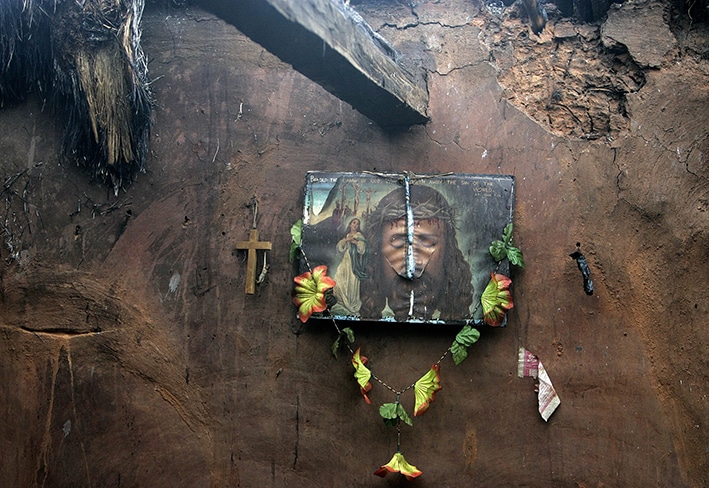
Religious communities in Australia face many challenges. Persecution, thankfully, is not one of them.
At the end of January, the international Christian NGO Open Doors released its annual report on persecution of Christians around the world. It estimates that more than 360 million Christians face high levels of discrimination or persecution. For 312 million of these people, persecution is at very high or extreme levels.
1 in 7 Christians faces persecution globally. In Africa it is 1 in 5, and in Asia 2 in 5. Open Doors uses a definition of persecution that encompasses violence, killing, abductions, arrests, and destruction of churches. It also includes various forms of harassment, discrimination, and social and legal pressures.
Detailed country reports highlight how the causes and levels of persecution depend on a range of local factors. In India, for example, Christians make up just under 5 per cent of the population. Most are Dalits, the lowest caste, and already face discrimination because of this. The rise of radical Hindu nationalism, the control of some poor rural areas by Communist militants, and clan and tribal pressures in different parts of the country, all play a part in persecution of Christians, particularly converts.
In Nigeria, Christians make up about half the population but are a majority only in the south. Persecution elsewhere is intense, driven by Islamic insurgent groups such as Boko Haram and armed gangs. Organised crime and corruption, as well as the implementation of Sharia law in different states, are other important factors in the persecution of Christians.
The violence, including rapes, abductions for ransom, the destruction of churches and dispossession of farmland, has made many Christians refugees in their own country.
Persecution affects all religious communities, not just Christians.
The Pew Research Center publishes an annual study looking at social hostilities related to religion and government restrictions on religion in 198 countries. Its report for 2019 (the latest year for which data is available) was published last September.
It found 43 countries recorded high or very high levels of social hostility from private individuals and groups towards religious communities, including violence and harassment, compared to 53 countries in 2018. Terrorist activity related to religion also fell for a fifth year running. We can only hope and pray this continues.
While social hostilities dropped, government restrictions on religion stayed steady at their 2018 peak. In 2019, 57 countries had high or very high levels of government restrictions on religious communities, up 1 from the year before. Most of these countries were in Asia, the Middle East, and North Africa.
One in 7 Christians faces persecution globally. In Africa it is 1 in 5, and in Asia 2 in 5. Open Doors uses a definition of [persecution that encompasses violence, killing, abduction, arrests and destruction of churches.”
Various forms of harassment by governments against religious groups are more common than the use of force, but force takes a significant toll. The persecution of the Uyghur Muslims in Xinjiang in China, the Syrian government’s killing and detention of Sunni Muslim opponents, and the ongoing repression of Rohingya Muslims by the military in Myanmar, are three major examples.
Religious freedom is not a matter of life and death in countries like Australia. The problems vary from place to place. Pew ranks social hostilities for us as moderate and government restrictions as low. In contrast, the US and Italy are ranked moderate on both scores, while Germany and the UK are ranked moderate on government restrictions and high on social hostilities.
Desecration and vandalism of places of worship is one form social hostility takes in the West. This has emerged as an issue in the US over the last two years and is a regular problem in many European countries. It accounts for at least half of the hate-crimes against Christians reported in France, Germany, Spain, Sweden and the UK by the Observatory on Intolerance and Discrimination Against Christians in Europe in its report for 2019-20, published last November.
Anti-discrimination laws can provide some protection for religious people, which is why we need a religious discrimination law in Australia. In early January, a nurse in England won a case for unfair dismissal against the hospital where she worked. She had been pressured over several years to remove the cross she wears, while staff of other faiths were permitted to wear religious apparel. The Tribunal noted that in some parts of the world, banning Christians from wearing crosses has been a feature of persecution.
Announcing that his prayer intention for January was for those suffering religious persecution and discrimination, Pope Francis said that religious freedom is about appreciating our differences as brothers and sisters. He described religious persecution as inhuman and insane, adding that “either we are brothers and sisters, or we all lose”. Protecting religious freedom at home and calling out persecution abroad strengthens our sense of what we share together, despite everything that makes us different.
Related:
